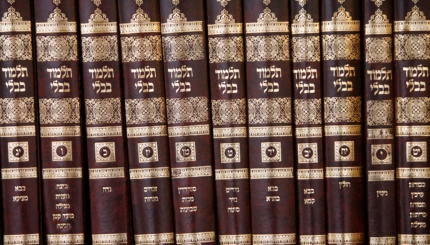Jewish Law Texts
Seder Toharot (Ritual Purities)
Laws regarding purity and impurity may seem obscure to modern Jews, but the concepts give us a glimpse into a world where manifestations of death within life are not sanitized away.
Seder Moed (Appointed Time)
The order of the Mishnah that describes the customs, laws, and rituals of Judaism's holy days
Seder Kodashim (Holy Things)
The rabbis restored the religious meaning of the sacrificial cult even though the Temple itself had been destroyed.
Seder Nashim (Women)
Seder Nashim's primary concern is the protection of society's "exceptional" members.
Seder Zeraim (Agriculture)
Some of the mishnaic laws related to agriculture remain directly relevant for contemporary urban and suburban lives.
Seder Nezikin (Damages)
Universal interpersonal and societal issues, rather than Jewish ritual law, are the main subject of Seder Nezikin.
The Tosafot
The Tosafists continued the conversation with their glosses on the text of the Talmud.
Berakhot 2a: What’s on the Opening Page of the Talmud
The Talmud treats the law as a given; its agenda is to see how the different understandings of that law relate to each other.
Maimonides on the Six Orders of the Mishnah
The sequence of the six orders follows the precedent of Scripture
Talmud is Not a Code of Law
In working out the ideas behind the statements of the rabbis, the Talmud serves not as a law code but as a work of Jewish legal theory.







